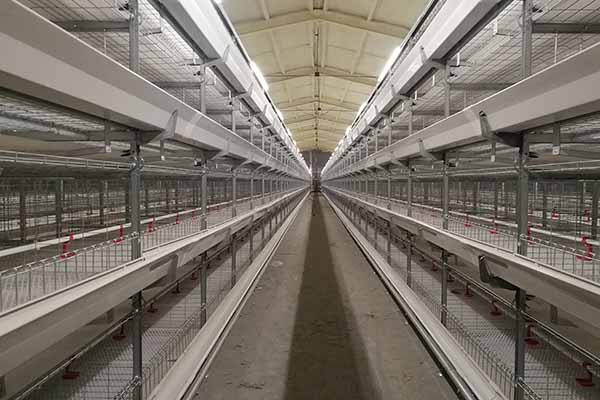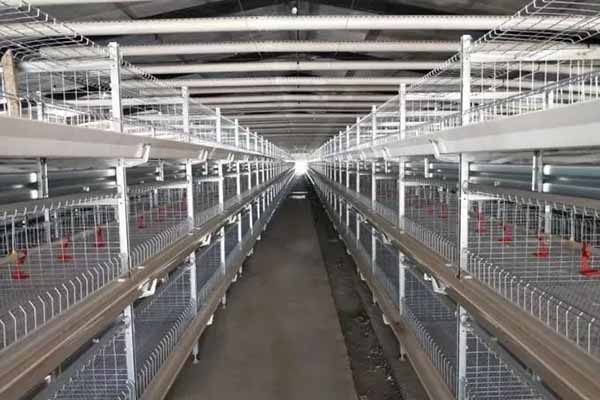Layer Farming Business Plan in Kenya: A Professional Approach
Time : 2025-06-27
Layer farming is a thriving industry in Kenya, offering substantial opportunities for entrepreneurs and investors. To create a successful layer farming business plan, it is crucial to consider various factors, including market analysis, equipment needs, and sustainable practices. In this article, we will delve into a comprehensive business plan for layer farming in Kenya, incorporating professional insights and knowledge of poultry equipment.
Executive Summary
The proposed layer farming business aims to establish a sustainable and profitable enterprise in Kenya. Our vision is to provide high-quality eggs to the local market while ensuring ethical and environmental standards are met. This business plan outlines the strategic approach, financial projections, and operational details necessary for a successful layer farming venture.
Market Analysis
Kenya’s egg market has been growing steadily, with a rising demand for eggs in both urban and rural areas. The demand is driven by a growing population, increasing disposable income, and a preference for fresh, locally produced eggs. According to a recent market report, the Kenyan egg market is expected to grow at a compound annual growth rate (CAGR) of 5.5% between 2020 and 2025.
Business Model
Our layer farming business will operate on a vertical integration model, encompassing broiler production, feed manufacturing, and egg processing. This approach ensures control over the entire supply chain, from hatching to final product delivery. The business will target both the wholesale and retail markets, including supermarkets, hotels, restaurants, and direct sales to consumers.

Operations and Facilities
The layer farming facility will be equipped with state-of-the-art poultry equipment to ensure optimal production and health conditions for the chickens. The following are some key components of our operations:
- Brooding Area: A designated area for hatching and raising chicks until they are moved to the laying house.
- Laying House: A well-ventilated and temperature-controlled environment where hens will lay eggs. The house will be equipped with perches, feeders, and waterers designed to enhance laying performance.
- Feed and Water System: Automated systems to ensure a constant supply of feed and water to the chickens.
- Environmental Control System: A system to monitor and adjust temperature, humidity, and air quality within the laying house.
- Manure Management: A modern waste management system to convert chicken droppings into organic fertilizer, minimizing environmental impact.
Financial Projections
Our financial projections are based on a comprehensive analysis of the market, production costs, and sales forecasts. The following are some key financial metrics:
- Startup Costs: The estimated cost to set up the layer farming operation, including the purchase of equipment, land, and initial feed and chick orders.
- Operational Costs: Ongoing expenses, including feed, water, utilities, labor, and maintenance of equipment.
- Revenue: Estimated sales from the sale of eggs to various market segments.
- Profit Margin: The expected profit margin after subtracting all expenses from revenue.
Marketing and Sales Strategy
Our marketing and sales strategy will focus on building a strong brand presence in the Kenyan egg market. We will utilize the following channels:
- Digital Marketing: Utilizing social media, email marketing, and search engine optimization (SEO) to increase brand awareness and drive traffic to our website.
- Direct Sales: Selling eggs directly to consumers through local markets, supermarkets, and community events.
- Wholesale Sales: Establishing relationships with wholesalers and retailers to distribute our products to a wider audience.
Sustainability and Ethical Practices
Ethical and sustainable practices are integral to our business model. We will implement the following initiatives:

- Animal Welfare: Ensuring the well-being of our chickens through proper nutrition, housing, and health care.
- Environmental Responsibility: Reducing our carbon footprint through energy-efficient practices and waste management systems.
- Community Engagement: Engaging with local communities to promote awareness of our sustainable practices and to create job opportunities.
Conclusion
Layer farming in Kenya presents a promising opportunity for entrepreneurs and investors. By following a comprehensive business plan that incorporates market analysis, state-of-the-art poultry equipment, and sustainable practices, a layer farming business can achieve profitability and success. As t he Kenyan egg market continues to grow, the right business plan can ensure a competitive edge and long-term sustainability.
he Kenyan egg market continues to grow, the right business plan can ensure a competitive edge and long-term sustainability.











